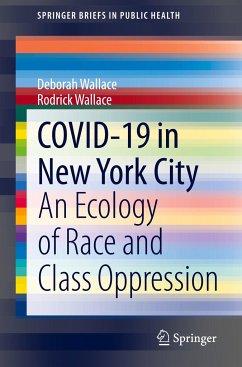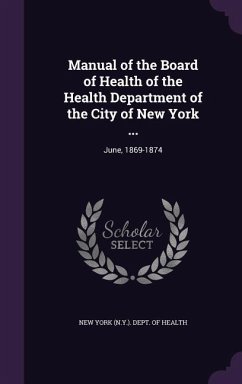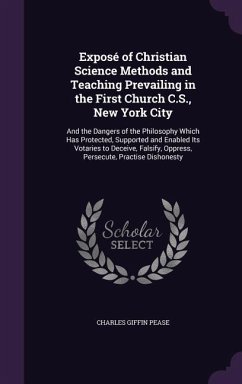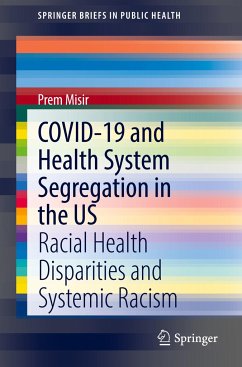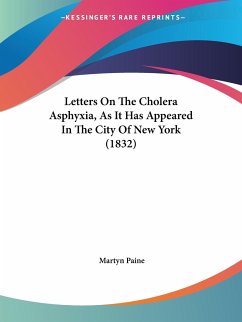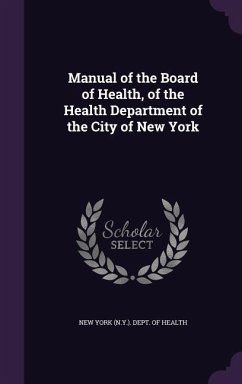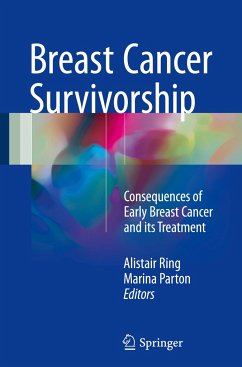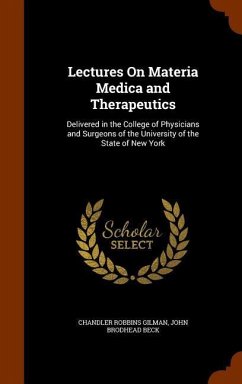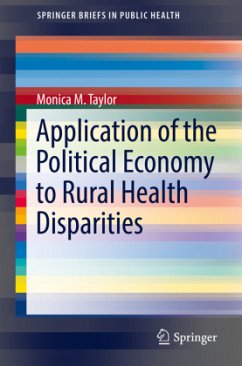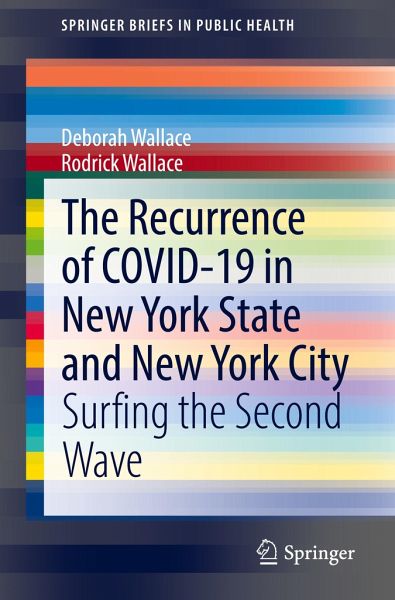
The Recurrence of COVID-19 in New York State and New York City
Surfing the Second Wave

PAYBACK Punkte
21 °P sammeln!
As a follow-up to COVID-19 in New York City: an Ecology of Race and Class Oppression, which showed that decades of discriminatory public policies shaped the Bronx into the epicenter of the first wave of COVID-19, this book examines the build up to the crest and subsequent ebbing of the second wave of COVID-19 across the 62 counties of New York State (NYS) and 152 ZIP Code areas of the four central boroughs of New York City (NYC). Like its predecessor, the sequel examines the vulnerabilities that give rise to spikes in infection rates that form epicenters. Unlike the first wave, NYC was not the...
As a follow-up to COVID-19 in New York City: an Ecology of Race and Class Oppression, which showed that decades of discriminatory public policies shaped the Bronx into the epicenter of the first wave of COVID-19, this book examines the build up to the crest and subsequent ebbing of the second wave of COVID-19 across the 62 counties of New York State (NYS) and 152 ZIP Code areas of the four central boroughs of New York City (NYC). Like its predecessor, the sequel examines the vulnerabilities that give rise to spikes in infection rates that form epicenters. Unlike the first wave, NYC was not the epicenter of the second wave; high-incident counties just outside NYS formed an extended initial epicenter and exported COVID-19 to neighboring counties of NYS.
Rural NYS counties differed significantly from urban ones socioeconomically and in infection rates during the cresting period. Before the crest, no socioeconomic factor was associated with county infection rates; rather, themajor associating factor was political and cultural: percent of the 2020 vote garnered by Trump. Rural counties voted heavily for Trump. This association disappeared post-crest by mid-January 2021. In NYC, the Bronx again behaved like a single high-incidence entity, unlike the other three boroughs that had patches of high and low infection incidence.
Among the topics covered:The Second COVID Wave Washes Over New York StateThe Second Wave Storm-Surges Across New York City
Discussion of County Data from the Second Wave of COVID-19Parsing Meaning From the 152 ZIP Code Data The book closes with a prescription for pandemic response planning based on empowered communities and workers interacting with health departments as equals.
The Recurrence of COVID-19 in New York State and New York City is a valuableresource for social epidemiologists, public health researchers of health disparities, those in public service tasked with addressing these problems, and infectious disease scientists who focus on spread in human populations of new zoonotic diseases. The brief also will find readership among students in these fields, civil rights scholars, science writers, medical anthropologists and sociologists, medical and public health historians, public health economists, and public policy scientists.
Rural NYS counties differed significantly from urban ones socioeconomically and in infection rates during the cresting period. Before the crest, no socioeconomic factor was associated with county infection rates; rather, themajor associating factor was political and cultural: percent of the 2020 vote garnered by Trump. Rural counties voted heavily for Trump. This association disappeared post-crest by mid-January 2021. In NYC, the Bronx again behaved like a single high-incidence entity, unlike the other three boroughs that had patches of high and low infection incidence.
Among the topics covered:The Second COVID Wave Washes Over New York StateThe Second Wave Storm-Surges Across New York City
Discussion of County Data from the Second Wave of COVID-19Parsing Meaning From the 152 ZIP Code Data The book closes with a prescription for pandemic response planning based on empowered communities and workers interacting with health departments as equals.
The Recurrence of COVID-19 in New York State and New York City is a valuableresource for social epidemiologists, public health researchers of health disparities, those in public service tasked with addressing these problems, and infectious disease scientists who focus on spread in human populations of new zoonotic diseases. The brief also will find readership among students in these fields, civil rights scholars, science writers, medical anthropologists and sociologists, medical and public health historians, public health economists, and public policy scientists.



